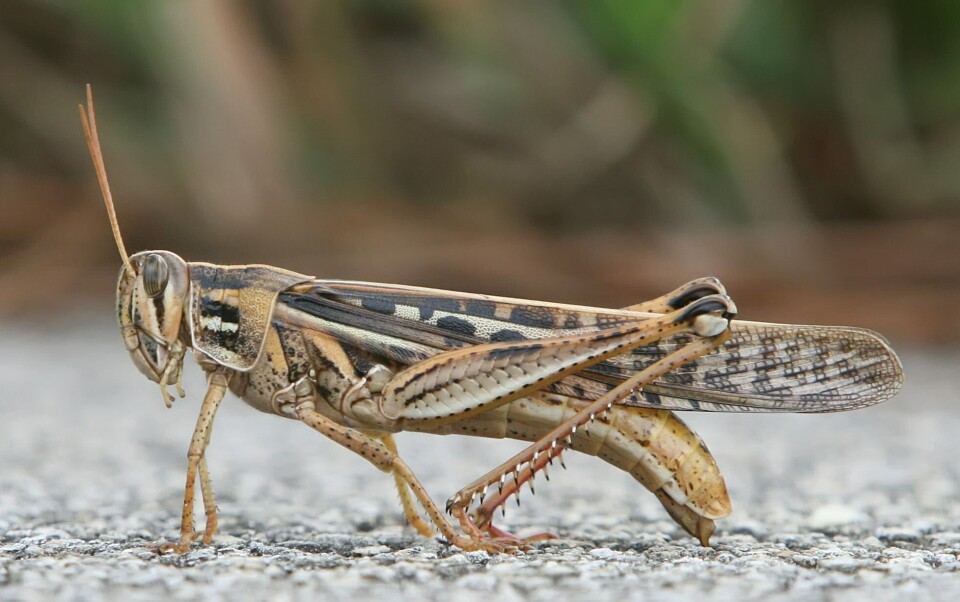
Cargill hoping to use grasshoppers in fish food
Multinational agricultural conglomerate Cargill is looking at the possibility of using crickets and grasshoppers, as well as other insects, in fish food, its chief executive David W. MacLennan has said on a visit to Chile.
When asked about the global trend for the inclusion of insects in feed, MacLennan replied: “We are studying insects, like crickets and grasshoppers. Our job as a food processing firm is to look for alternative sources of protein to include in our products. This supports sustainability. In other R & D centres we are working on the research of various insects as a source for our food.”
Cargill cemented its place as a major player in fish food supply when it bought Ewos more than a year ago and is working on increasing sustainable sources of protein by reducing animal parts and increasing vegetables in fish food.
MacLennan said: “We are focused on this, we created a joint venture called Feed Kind along with Calysta, which represents our commitment to sustainable supply chains. In addition, one way to meet the growing demand for salmon is through products from agriculture.”
In October last year Cargill opened a $10.5m innovation and research centre, specifically geared to the health and wellbeing of salmon, in the Chilean coastal town of Colaco.
Talking about Cargill’s increasing interest in aquaculture, MacLennan, whose company employs 150,000 workers worldwide, said: “As we all know, we acquired the Ewos facility and this was the second largest acquisition in Cargill's history. The world will need more fish and salmon, so we think it's a good decision for the business.”
Asked about Cargill's position on the use of genetically modified organisms (GMOs) in animal feed, MacLennan said: “There are people who do not want to eat GMOs, and we respect that. We are in the process of developing supply chains free of GMO ingredients
“We think that GMOs are a good tool for sustainability, it is a support for resistance and disease, but we recognise that there is a large part of the population that does not want GMO-containing foods, so we can work in GMO-free chains and in alternatives.”
Free trade
When asked about the possible effects of US president Donald Trump’s policies on the aquaculture industry, Cargill’s CEO expressed concern about the growing trend towards protectionism and isolation worldwide. “It is something that has happened during history, but our position is based on believing in the open commerce and in the importance of the interchange between countries,” said MacLennan. “We also know that free trade has aspects to improve.
“Currently, the Trump administration only has a little more than 60 days, so there are no major changes at the moment. However, we will make our voice and opinion heard. We were big supporters of the TPP (Trans Pacific Partnership), and we were disappointed when the US government decided not to participate.”
MacLennan also stressed the importance of collaborative initiatives to Cargill.
He said: “It is crucial because we are not smart enough to know everything, nor so good to have all the skills to be successful, that's why we have established partners for cooperation.
“The joint venture with Calysta is an example, we also have agreements for cattle in Australia and we have had meetings to cooperate with Copersucar, a sugar cane processing firm in Brazil. Alliances with environmental organisations such as the Nature Conservancy and WWF also support us to be more environmentally responsible. We are humble and we recognise that we can not have all the answers and we need partners to solve things.”























































